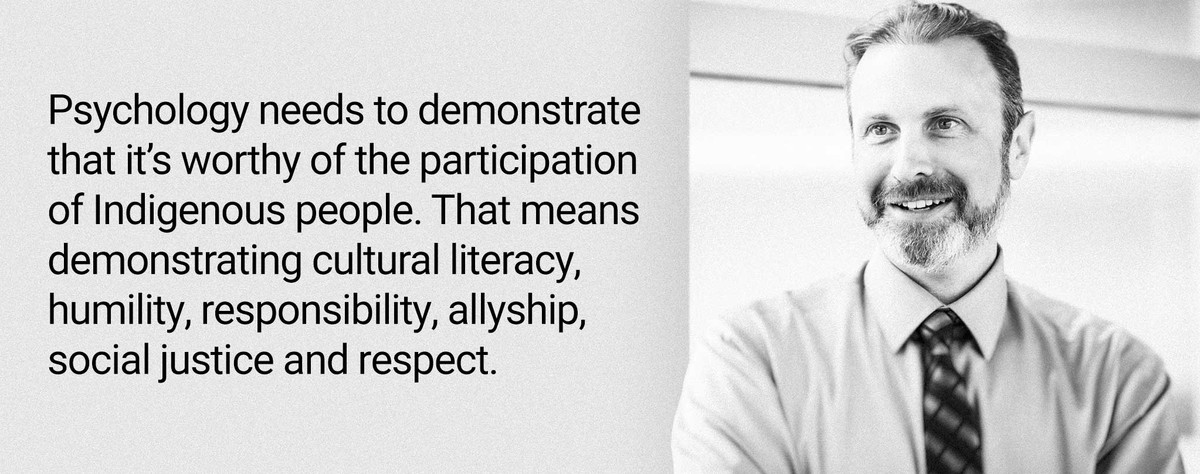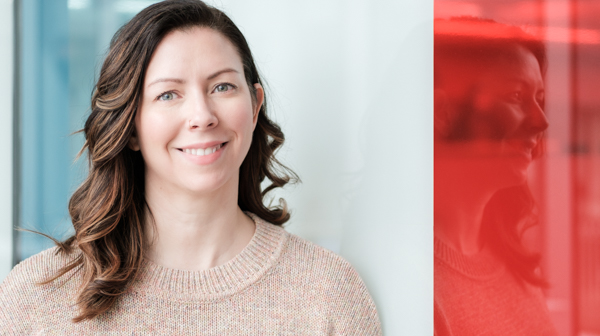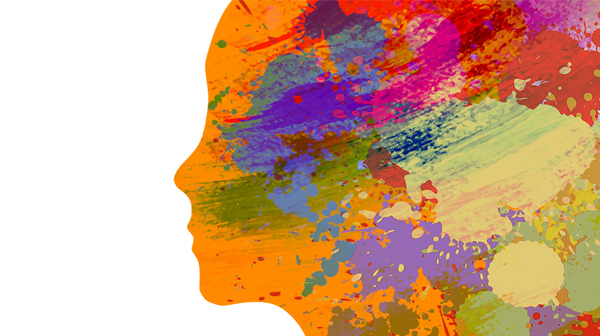- Future Students
- Current Students
- Faculty
- Staff
- Alumni
- Others
Q-&-A: Can Psychology meet the needs of Indigenous People?

How can university-level Canadian psychology programs encourage more enrolment from Indigenous students, given the role psychology has played in the marginalization of Indigenous Peoples? And how can those same programs ensure Indigenous students have a better experience if they do enrol?
Those were the topics discussed at a recent University of Manitoba summit of leading international experts that featured: Dr. J. Douglas McDonald, Professor of Psychology and Director of the INPSYDE program, University of North Dakota, Dr. Karla Tait, Mental Wellness Manager, First Nations Health Authority and University of Guelph-Humber Psychology Program Head, Dr. David Danto.
Previously, Dr. Danto assembled and chaired a joint task force between the Canadian Psychological Association and the Psychology Foundation of Canada that was created to develop concrete, action-oriented recommendations to improve the psychology field’s service to the First Nations, Métis and Inuit populations in Canada.
The findings of the 17-person task force – composed of Indigenous Knowledge Keepers and community leaders as well as experts in mental health and psychology – ultimately formed the basis of Psychology’s Response to the Truth and Reconciliation Commission of Canada’s Report, which urged a number of changes including new guiding principles for the profession of psychology with regard to Indigenous people, including cultural allyship, humility and collaboration.
Dr. Danto, who is co-editor of the textbook Indigenous Knowledge and Mental Health: A Global Perspective with University of Guelph-Humber Psychology instructor Dr. Masood Zangeneh, talked to us about the factors that have led to an underrepresentation of Indigenous people and knowledge in Canadian psychology programs.
What are some of the historical barriers that have prevented Indigenous people from studying Psychology?
Psychology as a field is relatively new. It really arose – particularly in North America – in the same historical context and 200-year period in which European colonists spread across the continent. Our university school system is really founded on a Western model of education. Psychology and to a larger extent healthcare in general arose within that same historical and cultural context.
So, it should not be surprising that Psychology, healthcare in general and the school system, including higher education, have not been great to Indigenous people. We recognize that now. For example, the assessments that have been administered by psychologists have been developed by Western-educated people who are not Indigenous, based on Western science and ways of knowing. They used methods that are valued by Western scientists and developed and normed on populations that are not Indigenous. We developed these psychological tests and measures and then administered them to Indigenous people, and lo and behold, we find Indigenous people test lower – in almost any sphere – or find that whatever result you would rather not have, Indigenous people will have more of that result. In some cases, this outcome may be an artifact of the tests or measures themselves. In other cases, we may be getting a glimpse into the larger problematic context of systemic injustice that continues to marginalize and retraumatize Indigenous people.
So that corresponds with higher rates of incarceration and more Indigenous children that have been taken away from their families, as well as the pathologizing of Indigenous people in general. All of that has been true for many years and only now are people starting to be aware of it.
What other factors might be preventing Indigenous students from pursuing an education in psychology?
Should an Indigenous high-school student think about entering the field of psychology at university, there are a number of systemic barriers. They may live in a community where their high school did not offer university-level courses – so even if they got straight A’s in their high school, they would not be able to go to a university afterwards. And then people may leave their community to go to a high-school that offers the requisite U-level courses, but in that new community they may face racism, and they may have to deal with that as young kids, living away from their family and outside of their community. There may also be socioeconomic disparities that prevent someone from going to university.
But then, Indigenous people who have finished high school and have been admitted into university have had to confront harmful myths in the classroom that pathologize Indigenous people. Indigenous students have also been asked to speak to their culture as examples – sometimes not in flattering ways. People receive insults from faculty members who don’t even know, because of their lack of cultural literacy, that they’re being insulting.
Even outside of the specific context of psychology, for an Indigenous person to enter into a Western institution, you’re asking them to participate in a culture, an educational system, a language and an epistemology that has been part of the systemic oppression of that person’s family and people for many generations. Therefore, many Indigenous people who enter into the Western school system risk something that Western people don’t risk. When their grandparents or Elders tell them cultural stories about spirits or about their connection to nature, and they then find themselves in a classroom where they’re being lectured to by somebody who has a Western, positivistic, natural scientific perspective – those people may be speaking to ways of knowing that purport to be superior and in opposition to those forms of knowledge that that person was raised with. For some Indigenous people, that’s something that they have to reconcile and they have to be silent about.
People have told me their stories about being marginalized, belittled, and having their ways of knowing devalued in the classroom. Ultimately, it seems there’s a small number of Indigenous people who have graduated from the university system that produces psychologists for example. And so, because of deeply entrenched systemic barriers, there are relatively few Indigenous psychologists, Indigenous academics, and Indigenous researchers in Canada.
That’s a huge problem on a fundamental social justice level but in addition, we need those Indigenous psychologists in order to work with Indigenous communities and to participate in the creation of a profession that is more hospitable for future generations of Indigenous people. Having said that, the few psychologists in Canada that identify as Indigenous are doing such amazing work, not only in working within their fields but also in their work of Indigenizing psychology and in support of each other and their students. Many have heroically overcome truly massive systemic barriers.
What can be done to address that lack of Indigenous voices in the psychology field in Canada?
Well first, I should be clear that there are many out there who are doing great work too, who are bridging different perspectives in ways like Elder Albert Marshall’s Two-Eyed Seeing approach. There are clinicians who are using culturally informed therapies. There are culture-based-treatment programs and there are those conducting research in ways that fit well with Indigenous ways of knowing. There are universities that are starting to require Indigenous cultural literacy courses for staff and students, and starting to do self-inventories about their institutions’ place on the path toward reconciliation. We are starting to see governing bodies, National, provincial and territorial organizations in Psychology take an explicit stand and commit to action with regard to reconciliation. We are seeing these issues more and more in the public’s consciousness, with honouring Elders, territorial acknowledgments, the new federal statutory holiday now known as the National Day for Truth and Reconciliation, the creating of academic and administrative positions that focus on Indigenous rights and knowledge, for example.
We have indeed seen progress in the last decade or so but there’s still a lot that has to change within the field. As one of my colleagues said, psychology needs to demonstrate that it’s worthy of the participation of Indigenous people. And that means coming toward Indigenous people. That means demonstrating cultural literacy, humility, responsibility, allyship, social justice and respect. We have to show that as a field, we are deserving of Indigenous people participating with us in this dialogue. And I think that’s how I see a lot of my work right now. I’m primarily trying to work within the context of non-Indigenous organizations so that we can do the self-inventory, and reflective work that is necessary to bring about real systemic change and demonstrate that we are worthy of the participation of those people who have been so mistreated by our institutions and who have been the custodians of this land since time immemorial.







